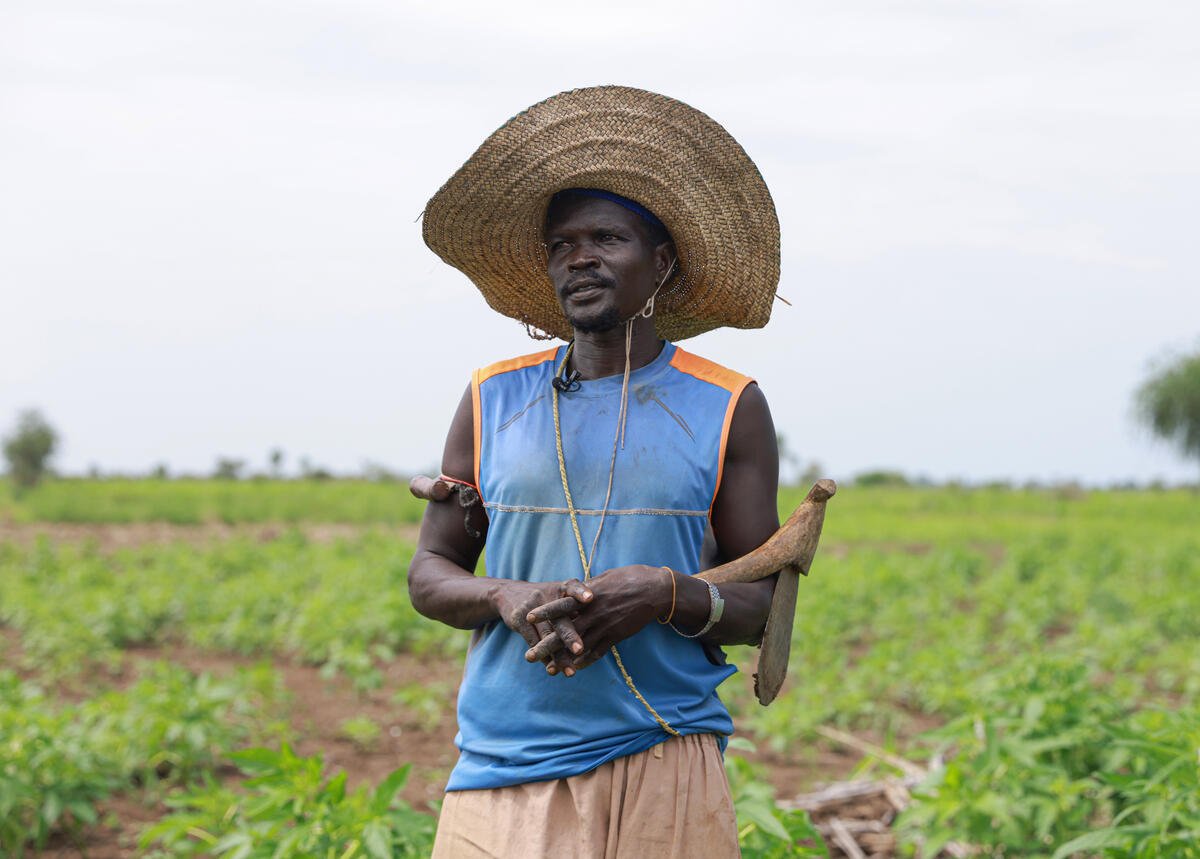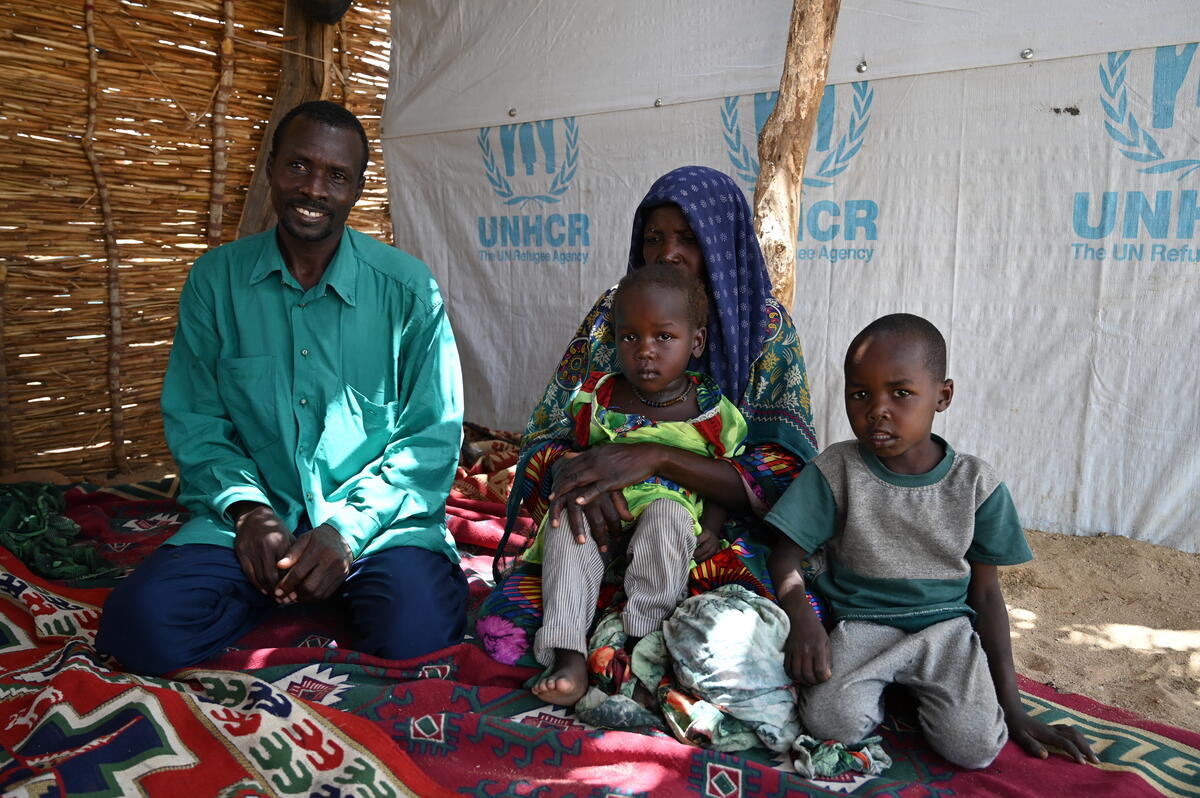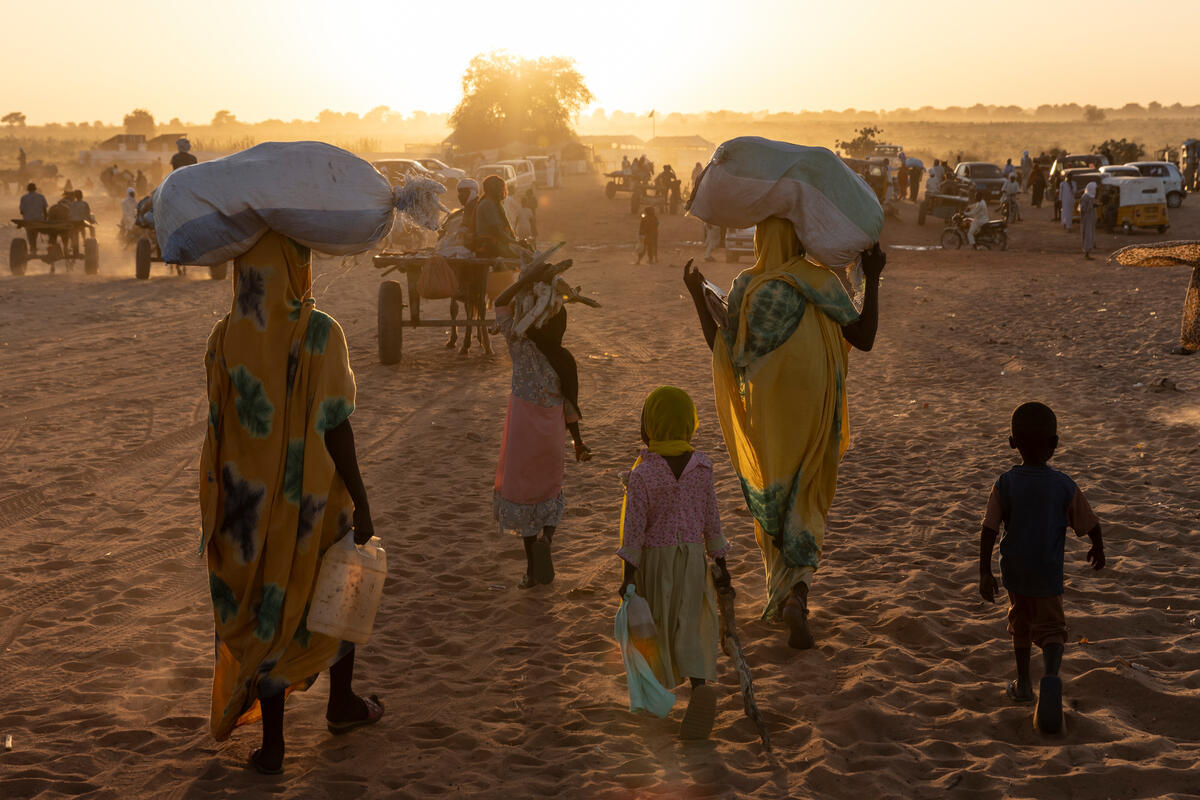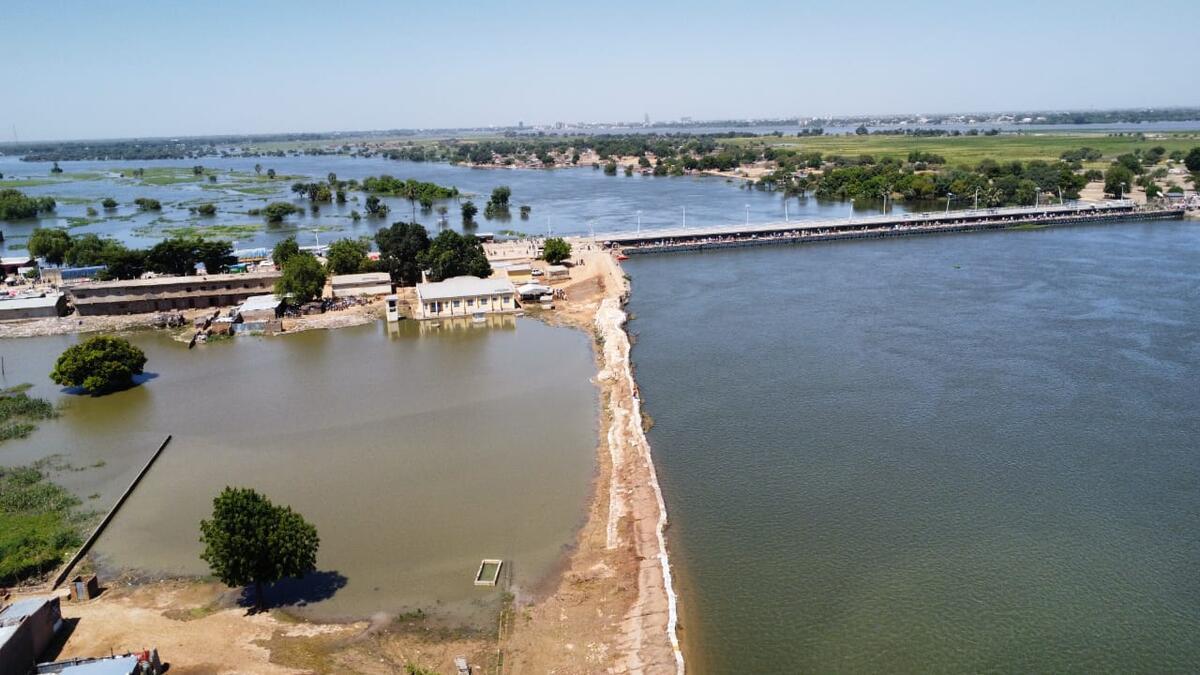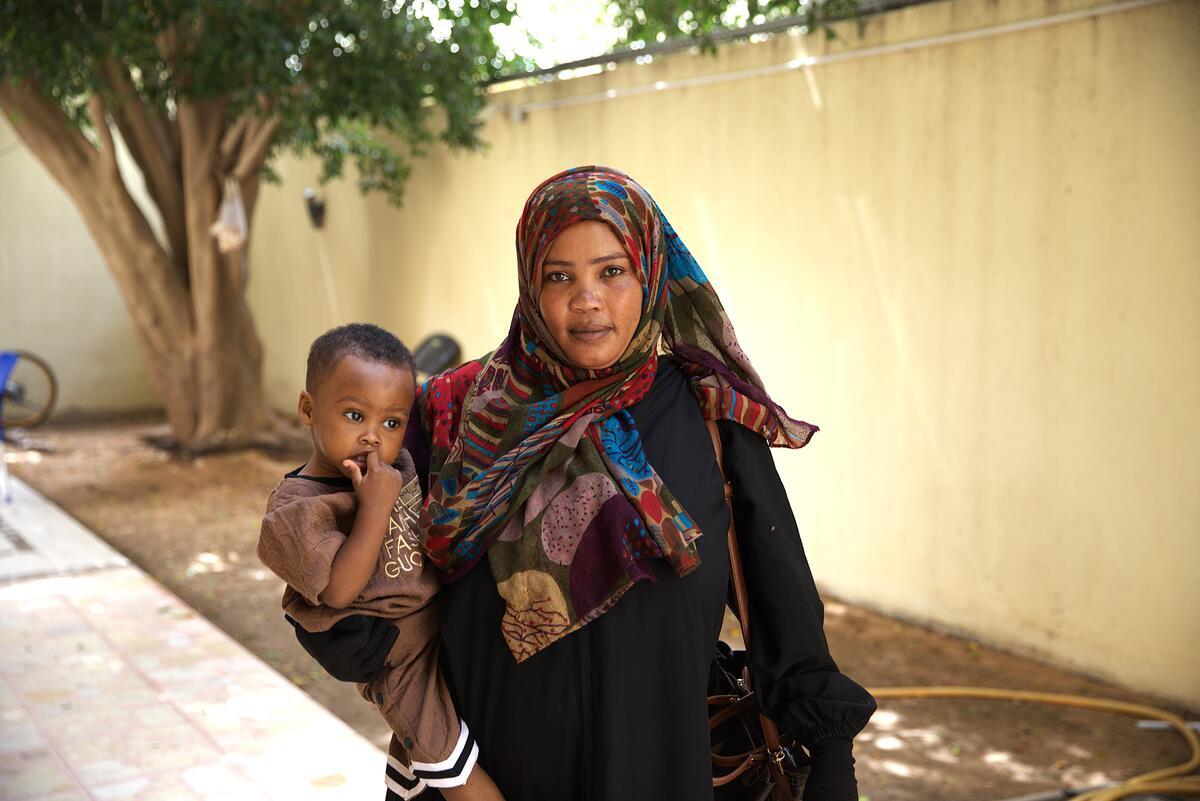UNHCR relocation operation for Darfur refugees tops 100,000
UNHCR relocation operation for Darfur refugees tops 100,000
16 June 2004
GENEVA - A massive relocation operation to transfer tens of thousands of Sudanese Darfur refugees away from insecure borderlands to new camps further inside Chad has now topped the 100,000 mark, UNHCR reported today.
The logistically difficult operation, spread across 600 kms of extremely remote desert on the Chad-Sudan border, began in January and has so far seen the construction to eight new camps to house all of the relocated refugees. The total population of the camps reached 101,218 on Tuesday.
Most of the refugees were trucked from makeshift encampments along the volatile border, but several thousand also made the journey on their own, bringing their livestock and other belongings.
The refugees began arriving into eastern Chad in mid-2003, fleeing aerial bombardment of their villages in Sudan's western Darur region and brutal attacks by militiamen. They were scattered across vast stretch of Chad-Sudan border in often isolated encampents vulnerable to scorching sun and cold, nighttime temperatures.
Between 50,000 and 90,000 Darfur refugees are still believed to be on the frontier, and hundreds more have been reported arriving weekly. The UNHCR relocation effort is aimed at getting as many of the refugees as possible away from the insecure border and into the new camps before the full onset of the rainy season, which is already beginning in some areas.
Those staying on the border have been subjected to continuing attacks by marauding militiamen from Sudan. U.N. High Commissioner for Refugees Ruud Lubbers, speaking to a recent Geneva donor conference on Darfur, warned of the threat of incursions into Chad as well as the infiltration and presence of armed elements among the refugees. He said this could lead to forced recruitment, diversion of humanitarian assistance and harassment of the refugee population.
"Armed incursions by janjaweed militia continue to constitute a tremendously serious threat to the lives of refugees," Lubbers declared.
The UN refugee agency this week issued a supplementary appeal for $55.8 million for emergency assistance to Sudanese refugees from Darfur, whose steady influx into Chad is likely to reach 200,000 by the end of the year. An earlier appeal issued in February that has so far received $18.4 million had to be revised upwards due to the continuing influx of war refugees from the brutal conflict in western Sudan.
The refugee agency has been airlifting urgently needed supplies and equipment into Chad in a costly exercise to boost quantities of available aid before rains isolate the new camps. A total of 39 cargo flights carrying tents, blankets, plastic tarpaulins, jerry cans, trucks, generators and and prefabricated warehouses have ensured that stocks are on the ground to meet the needs of 150,000 refugees throughout the rainy season and the additional arrivals later on.
Water is a major problem in the area due to the parched conditions in the Sahel that have stymied well-drilling operations. Additional water is being trucked daily into four of the newly built camps to meet the enormous needs. Several more camps are being identified and need to be constructed to accommodate the remaining refugees at the border.
Lubbers warned donor countries attending the June 3 conference that impoverished eastern Chad - despite the generosity of its people - was being severely affected by the influx from Darfur and needs much more international assistance.
"It is not sustainable in Chad to receive more and more people coming in. It's really too poor," Lubbers said. "We are facing a disaster."
In addition to its country office in the capital, N'Djamena, the refugee agency has so far opened six offices in eastern Chad, the newest in the north at Bahai. UNHCR and other aid agencies are currently distributing sorghum, oil and beans provided by the UN World Food Programme.

